Physician Stories
Physicians demonstrate leadership everyday to help their patients with a substance use disorder–or chronic pain. Learn more.

Drug overdose deaths decline–interview with Bobby Mukkamala, MD
January 31, 2025
AMA President-elect speaks on the nation’s overdose epidemic. A video of this interview can be found here. Unger: Hello and welcome to the AMA Update video and podcast. On the heels of National Addiction Treatment Week, today we’re talking about the current overdose landscape and the crucial role that physicians play in addiction treatment and recovery. […]
Read more >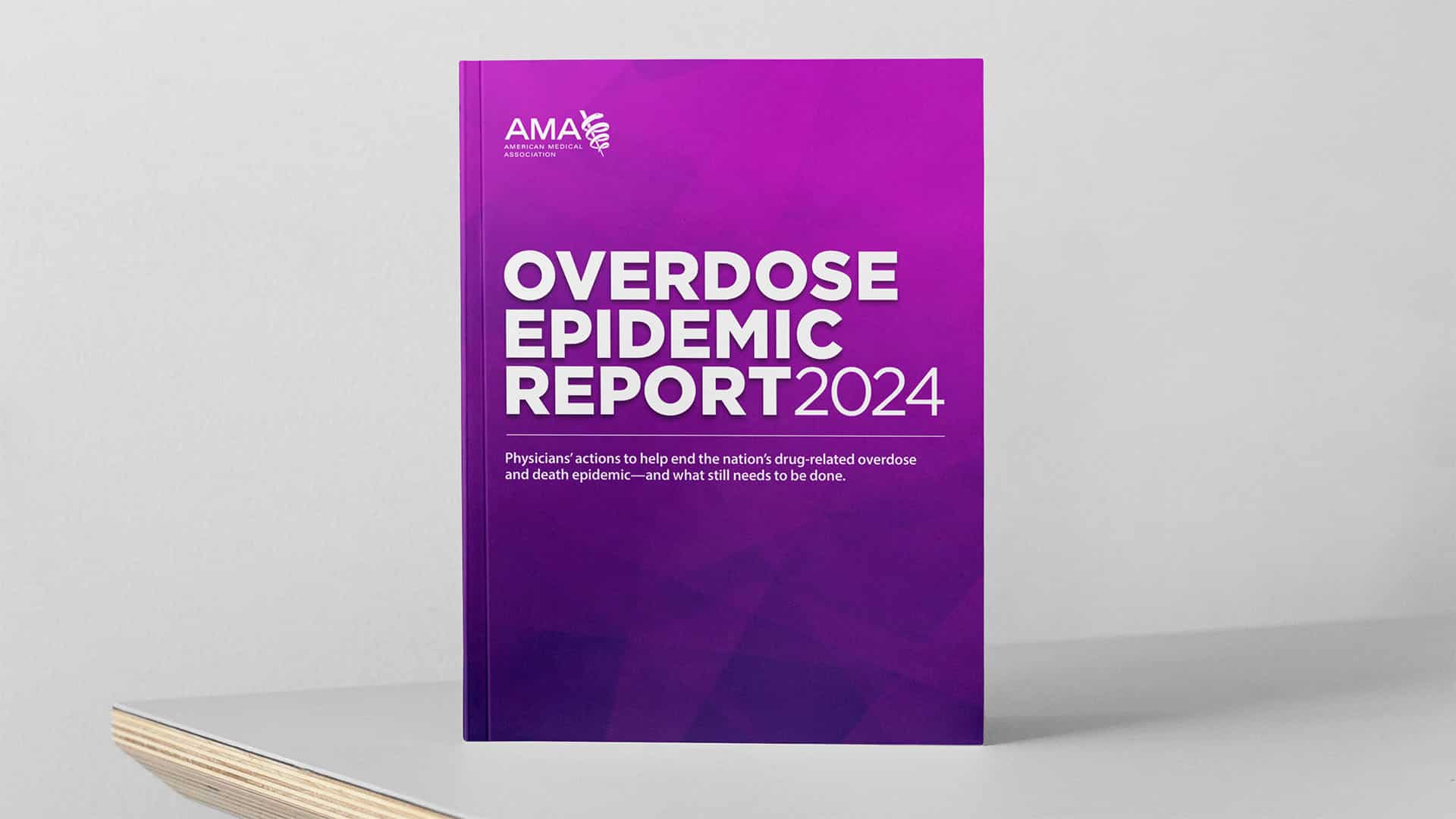
2024 AMA Overdose Epidemic Report
November 19, 2024
The American Medical Association Substance Use and Pain Care Task Force highlights progress in addressing the drug overdose epidemic, including increased harm reduction efforts, access to naloxone, and reductions in mortality, while emphasizing the need for better policies to address inequities and improve access to medications for opioid use disorder. Despite some positive trends, overdose […]
Read more >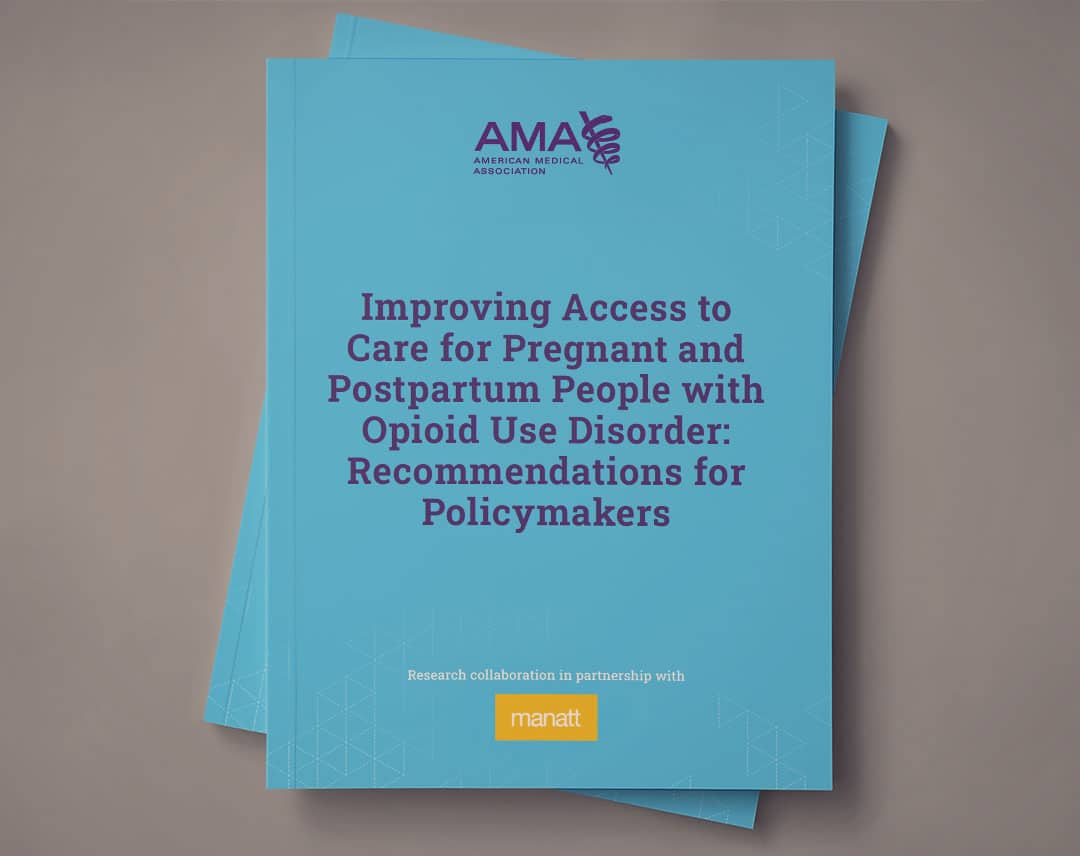
AMA-Manatt 2024: Improving Access to Care Pregnant Parenting People with SUD
February 6, 2024
The American Medical Association (AMA) and Manatt have developed recommendations for policymakers to improve access to care for pregnant and postpartum people with opioid use disorder, focusing several strategies on justice-involved individuals.
Read more >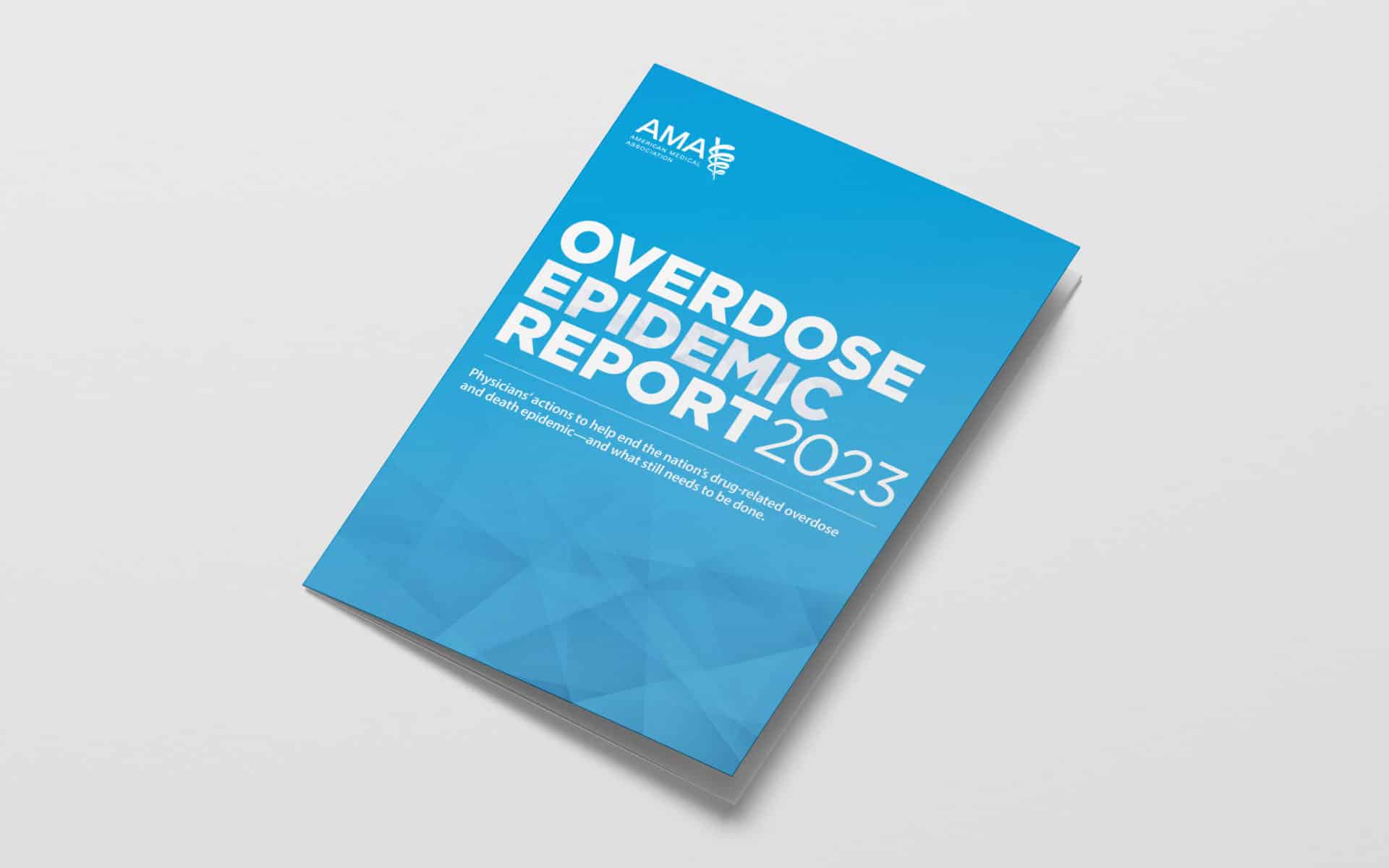
2023 AMA Overdose Epidemic Report
November 8, 2023
Opioid prescribing continues downward trend while overdose and death related to illicitly manufactured fentanyl, methamphetamine and cocaine increase.
Read more >Texas Medical Board Rewrites Rule to Improve Chronic Pain Care for Texas Patients
March 3, 2023
(reprinted with permission from Texas Medicine Today) The Texas Medical Board (TMB) recently revised one of its rules in a way that makes it easier for physician practices to provide more comprehensive pain management. The rule change came about in part because of widespread concerns that patients who cannot access effective treatment for chronic pain […]
Read more >AMA-Manatt Profiles in Leadership 2022
December 12, 2022
“The fight to end the nation’s overdose epidemic and restore compassionate care: Profiles in leadership.” Read more how a select group of physicians, policymakers and patient advocates exemplify proven policies and actions that help save lives and improve outcomes for people with substance use disorders, patients with pain, and those who need harm reduction services.
Read more >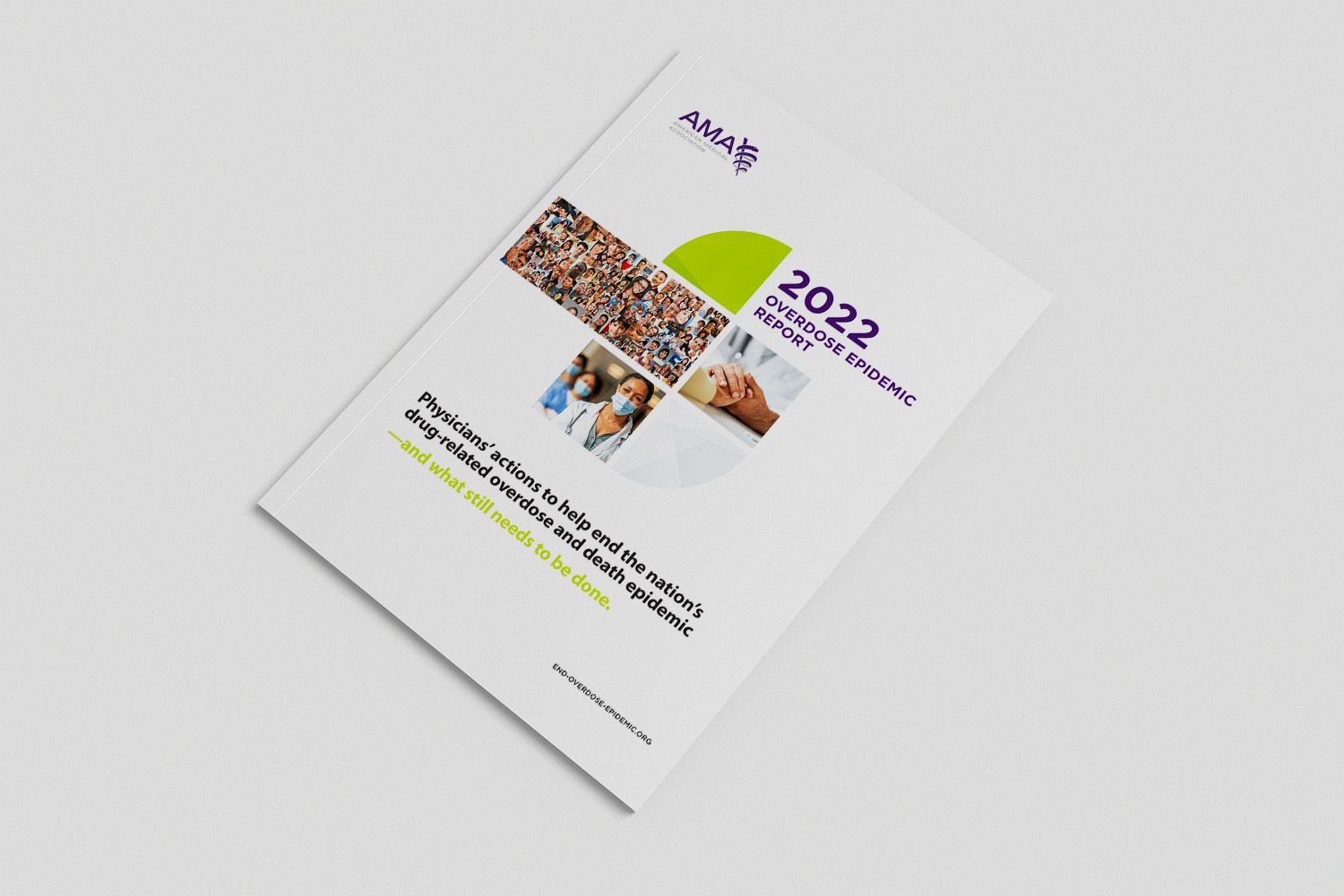
2022 AMA Overdose Epidemic Report
September 7, 2022
Opioid prescribing continues downward trend while overdose and death related to illicitly manufactured fentanyl, methamphetamine and cocaine increase.
Read more >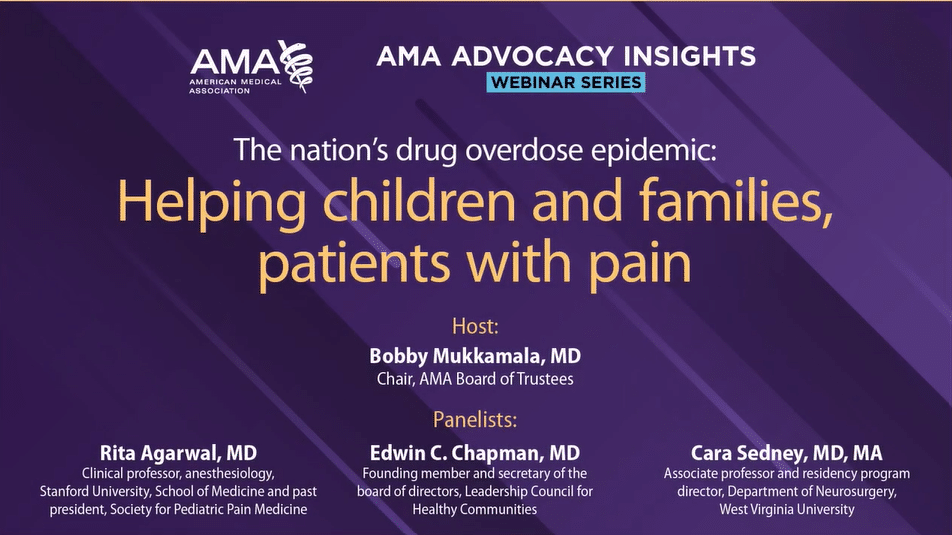
Helping children and families, patients with pain
May 3, 2022
“When children have pain, it needs to be treated,” said Rita Agarwal, MD, in a recent AMA Advocacy Insights webinar on the stigma facing patients with pain, including young children. The panel, moderated by Bobby Mukkamala, MD, chair of the AMA Board of Trustees and Substance Use and Pain Care Task Force, also addressed the consequences […]
Read more >
Putting the ‘Multi’ in Multimodal Care for Patients with Pain
March 28, 2022
While many people talk about the mind-body connection as part of optimal care for patients with pain, Arizona physician Whitney James, MD, has gone a step further, developing her own program to make that the guiding principle in how she treats patients. In her own words, Dr. James discusses her practice philosophy and how she […]
Read more >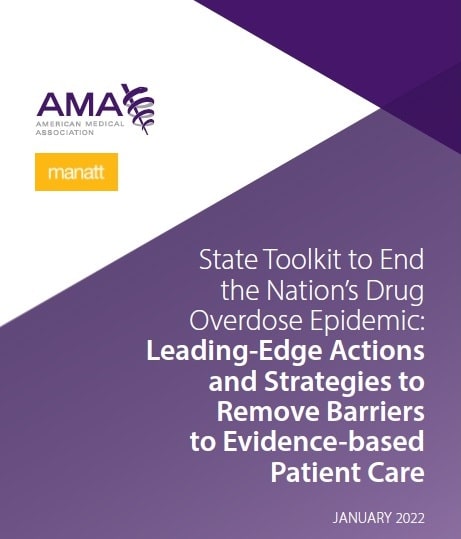
The AMA and Manatt Health 2022 State Toolkit
February 4, 2022
The AMA and Manatt Health 2022 State Toolkit identifies more than 400 state laws, regulations, policy guidance and other select national actions being implemented to help end the nation’s drug overdose epidemic. We encourage all states to use this resource as a go-to guide to increase access to evidence-based treatment and save lives from overdose.
Read more >Addiction medicine advocacy starts with addiction medicine physicians
January 14, 2022
One of the best ways to help patients with a substance use disorder is to become active in state politics, said multiple physicians at the recent American Society of Addiction Medicine (ASAM) State Advocacy Summit. The summit brought together a wide spectrum of clinical experiences and practices to provide practical tips and examples of how […]
Read more >Breaking through the applications barrier for addiction medicine
December 16, 2021
Nearly 500 physicians across 46 states and the District of Columbia and Puerto Rico have used a Michigan-based program to help become board certified in addiction medicine, and its architects hope to expand to all 50 states. The program, MI CARES, was launched in 2018 and helps physicians meet eligibility requirements for certification in addiction […]
Read more >
Ending the stigma of opioid use disorder in the Emergency Department
October 22, 2021
Don Stader, MD was working a shift in the emergency department (ED) in Denver, Colorado, in 2015 when he came face to face with his own stigma about opioid use disorder (OUD). A limp woman pulled from a car with a suspected heroin overdose. She was close to death before being administered naloxone. When she […]
Read more >
Embracing harm reduction in the emergency department
October 9, 2021
“We keep a stock of naloxone for anyone who wants it,” said Aneesh Narang, MD, explaining the importance of making sure those who overdose on opioids have immediate access to the life-saving antidote, naloxone. “While prescribing naloxone is important, getting it directly into the hands of people at risk of overdose makes it more likely […]
Read more >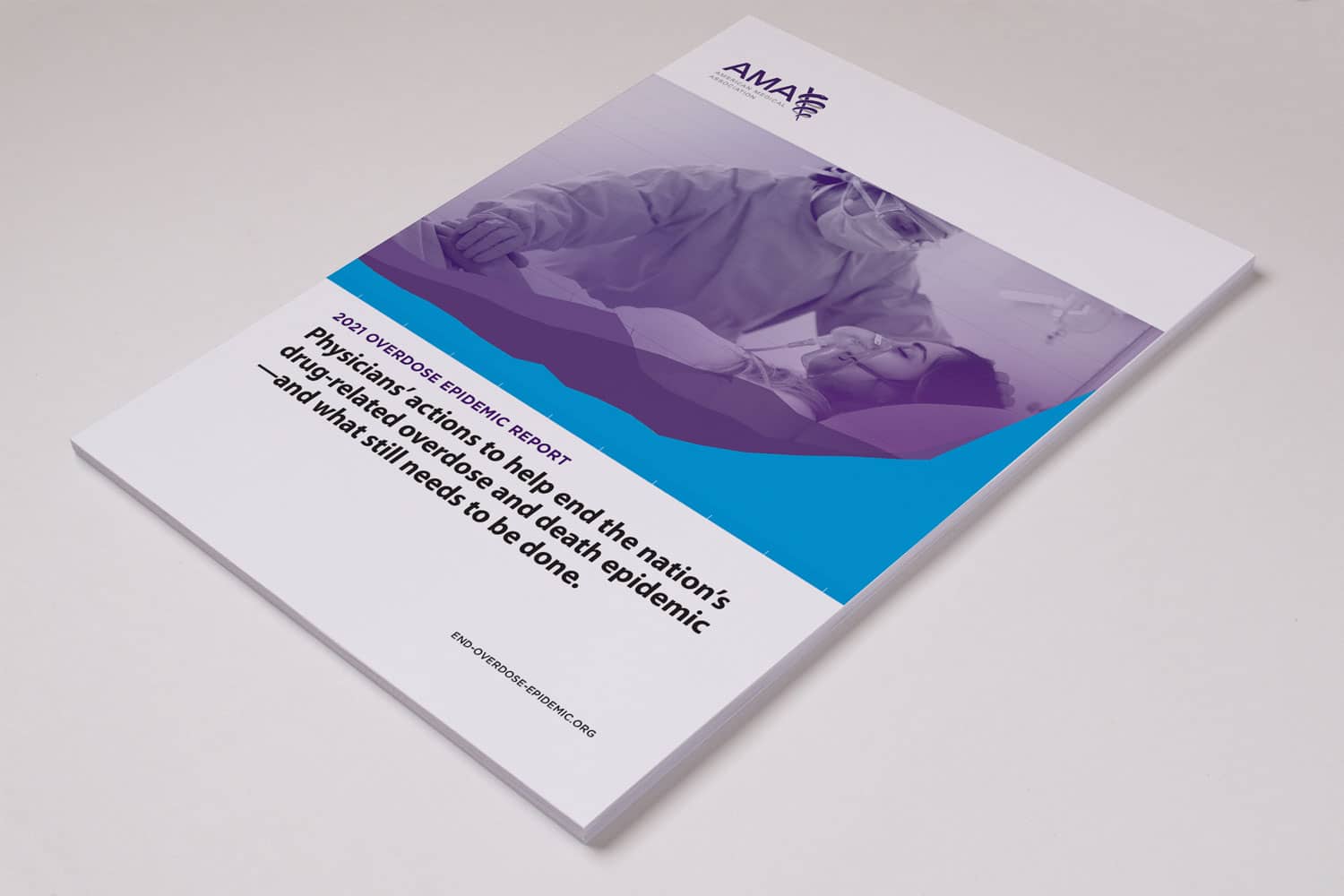
2021 AMA Overdose Epidemic Report
September 20, 2021
AMA calls on policymakers and others to remove barriers to evidence-based care for patients with pain and those with a substance use disorder.
Read more >
How raising her hand is strengthening our country’s addiction medicine workforce
July 27, 2021
‘You can’t train medical students in addiction if you don’t have trained faculty’ Board-certified Addiction Medicine Physician Cara Poland, MD, MEd, FACP, DFASAM wanted the State of Michigan to train a future generation of physicians to treat substance use disorders, but first, she realized that Michigan’s medical schools needed core faculty. Like nearly every state […]
Read more >Broad harm reduction efforts needed to save lives from overdose
June 1, 2021
Broad harm reduction efforts needed to save lives from overdose Nearly 88,000 Americans died from a drug-related overdose from September 2019 through September 2020, according to the U.S. Centers for Disease Control and Prevention (CDC). Illicitly manufactured fentanyl and fentanyl analogs were involved in more than 52,000 of those deaths. That represents a more than […]
Read more >When arbitrary policies and patient care collide
May 26, 2021
The news came through when Dr. Aaron Newcomb was on vacation. A few patients called the office to say that the local pharmacy denied prescriptions for pain, anxiety and opioid use disorder (OUD). One was a long-term female patient covered by Medicare who Dr. Newcomb had been treating for a few years for chronic pain […]
Read more >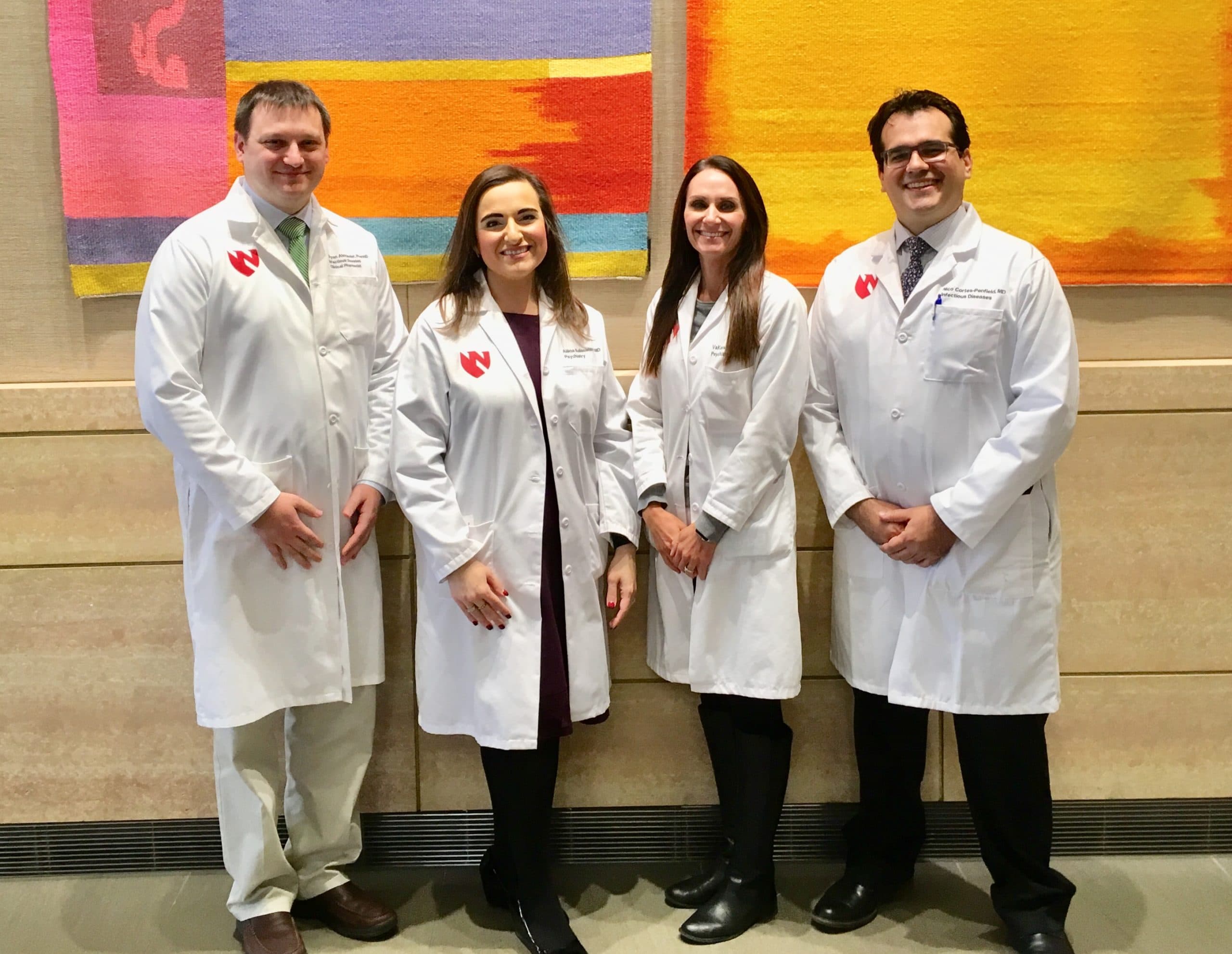
How one Nebraska addiction psychiatrist tirelessly advocates for her patients
May 19, 2021
When Alena Balasanova, MD, started the addiction psychiatry consultation-liaison service at the University of Nebraska Medical Center with a colleague two years ago, even she didn’t realize how much it would become part of the culture of her hospital. From developing protocols and processes for patients with substance use disorders getting surgery to routine consults […]
Read more >
Action needed to help justice-involved individuals who have a substance use disorder
May 4, 2021
There is no legal, medical or policy reason to deny access to medications for opioid use disorder (MOUD) for justice-involved persons, according to leading medical, legal and health policy experts speaking on recent webinar from the AMA and Manatt Health. The webinar is part of a year-long series to showcase specific policy recommendations in action […]
Read more >
Removing stigma: How advocacy, education and research enhances access to evidence-based care
March 3, 2021
To make an impact in patients’ lives, you have to lend your voice to advocacy efforts, said Linda Wang, MD, Assistant Professor of Medicine at the Icahn School of Medicine at Mount Sinai, who says that her work in social justice plays a critical role as a medical educator and physician who treats patients with […]
Read more >
Emphasizing medical student and physician mental health in the curricula
February 1, 2021
If there’s one takeaway pearl that Ruchi Fitzgerald, MD, hopes her students and residents will receive during their rotations, it is that treatment saves lives for those with a substance use disorder (SUD), depression, anxiety or other stigma-laden condition – including within the medical profession. “Paradoxically, the general public probably has an easier time accepting […]
Read more >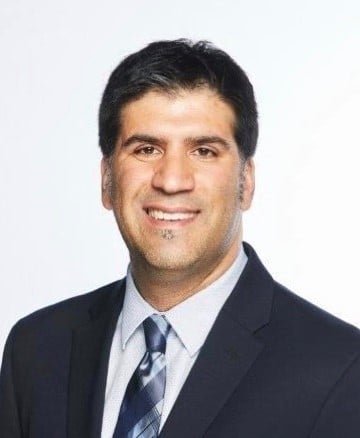
Texas FQHC develops integrative model to help patients with pain
January 29, 2021
It started with stabbing back pain, and then Fred Blackman’s legs gave way as he was showering before work. He was rushed to the hospital, and after nine months and multiple surgeries, Blackman left the hospital depressed, and needing help learning how to walk again and to quit slurring his words. To make things more […]
Read more >
AMA-Manatt Health 2020 National Policy Roadmap to End the Nation’s Drug Overdose Epidemic
December 16, 2020
This report provides leading-edge examples and best practices from more than 25 states. Policymakers and others can use these and the report’s tangible recommendations to take meaningful action to help patients access evidence-based treatment for substance use disorders, comprehensive pain care, and proven harm reduction strategies.
Read more >
Public-private partnership seeks to build SUD treatment network throughout Georgia
December 11, 2020
If people can’t access treatment for a substance use disorder close to where they live, they might not get any treatment, said Justine Welsh, MD, a child and adolescent and addiction psychiatrist and Director of the Emory Healthcare Addiction Services. Having evidence-based care for substance use disorders throughout Georgia is just one goal of a […]
Read more >
Collaborative care model normalizes mental health and addiction treatment in primary care
December 2, 2020
Patients are more comfortable talking to primary care physicians about their mental health in general and especially when we have resources available to support their mental health needs, said Matthew Press, MD, and Cecilia Livesey, MD – two of the architects of Penn Integrated Care at Penn Medicine, a program based on a validated model […]
Read more >
Telehealth increases access to care for the most vulnerable patient populations- regardless of location
August 13, 2020
District of Columbia physician Edwin Chapman, MD, understands that “innovation” is not a buzz word only conjuring up advancements such as stem cell research or cancer-curing treatments, but they also include using telephones and video to help vulnerable patients during the COVID-19 pandemic. In recent months the use and coverage of telehealth, once thought of […]
Read more >AMA Opioid Task Force Chair Patrice Harris, MD, MA, discusses current state of the overdose epidemic
August 3, 2020
The newly released AMA Opioid Task Force report shows a dramatic increase in fatalities involving illicit opioids, stimulants (e.g., methamphetamine), heroin and cocaine and a similarly dramatic drop in the use of prescription opioids. Illicit drugs are now the dominant reason why drug overdoses kill more than 70,000 people each year, according to the U.S. […]
Read more >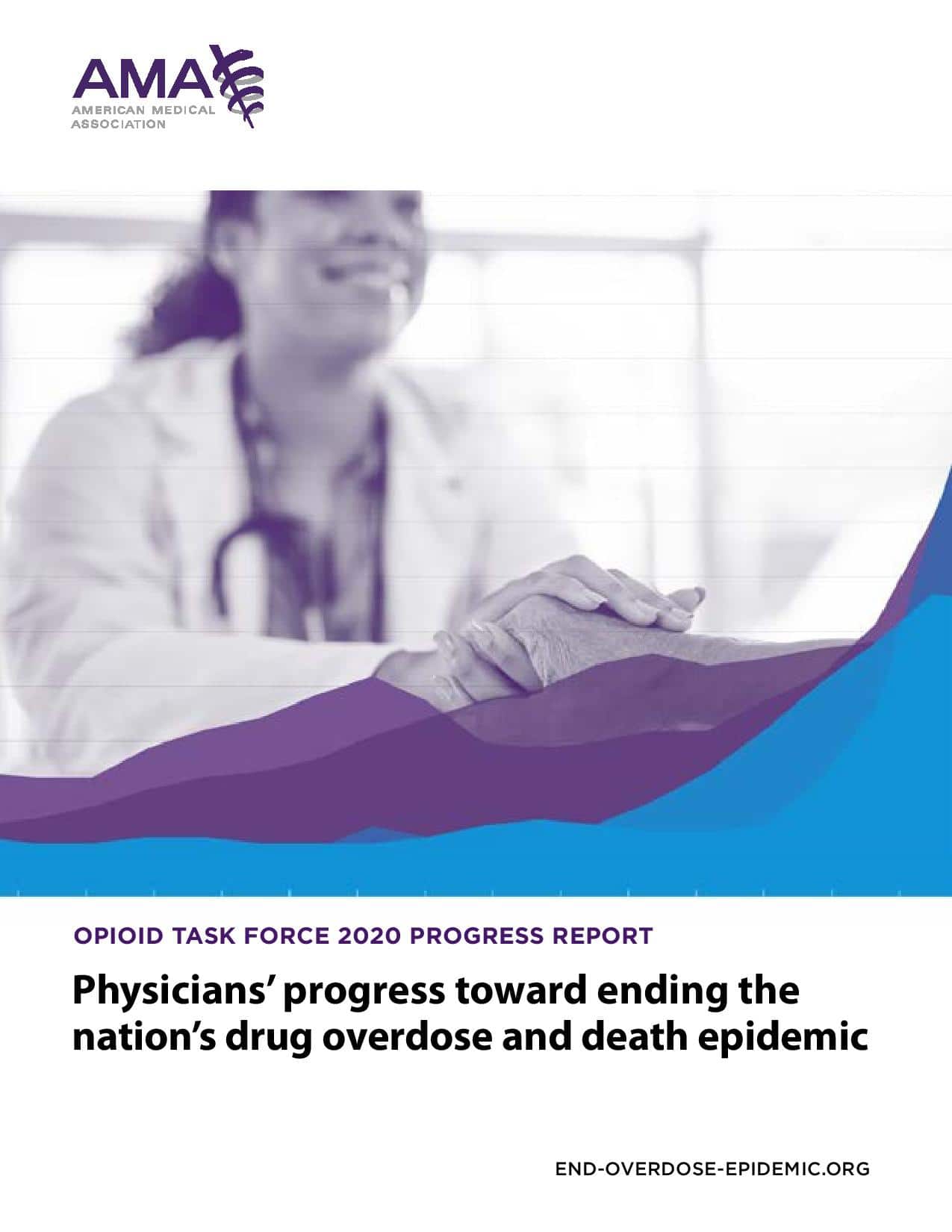
AMA Opioid Task Force 2020 Progress Report
July 20, 2020
Sharp reductions in prescription opioid supply, continued increases in PDMP use, but staggering increase in fatalities involving illicit opioids, methamphetamine, heroin and cocaine were demonstrated in 2019.
Read more >
Providing individualized pain care during COVID in West Virginia
June 26, 2020
West Virginia has suffered greatly as a result of the nation’s opioid-related overdose and death epidemic, but one West Virginia pain management clinic is embracing a “whole person” approach to help ensure patients receive optimal, individualized care. While pain care is often fragmented for the patient due to numerous barriers and inconsistent care protocols, we […]
Read more >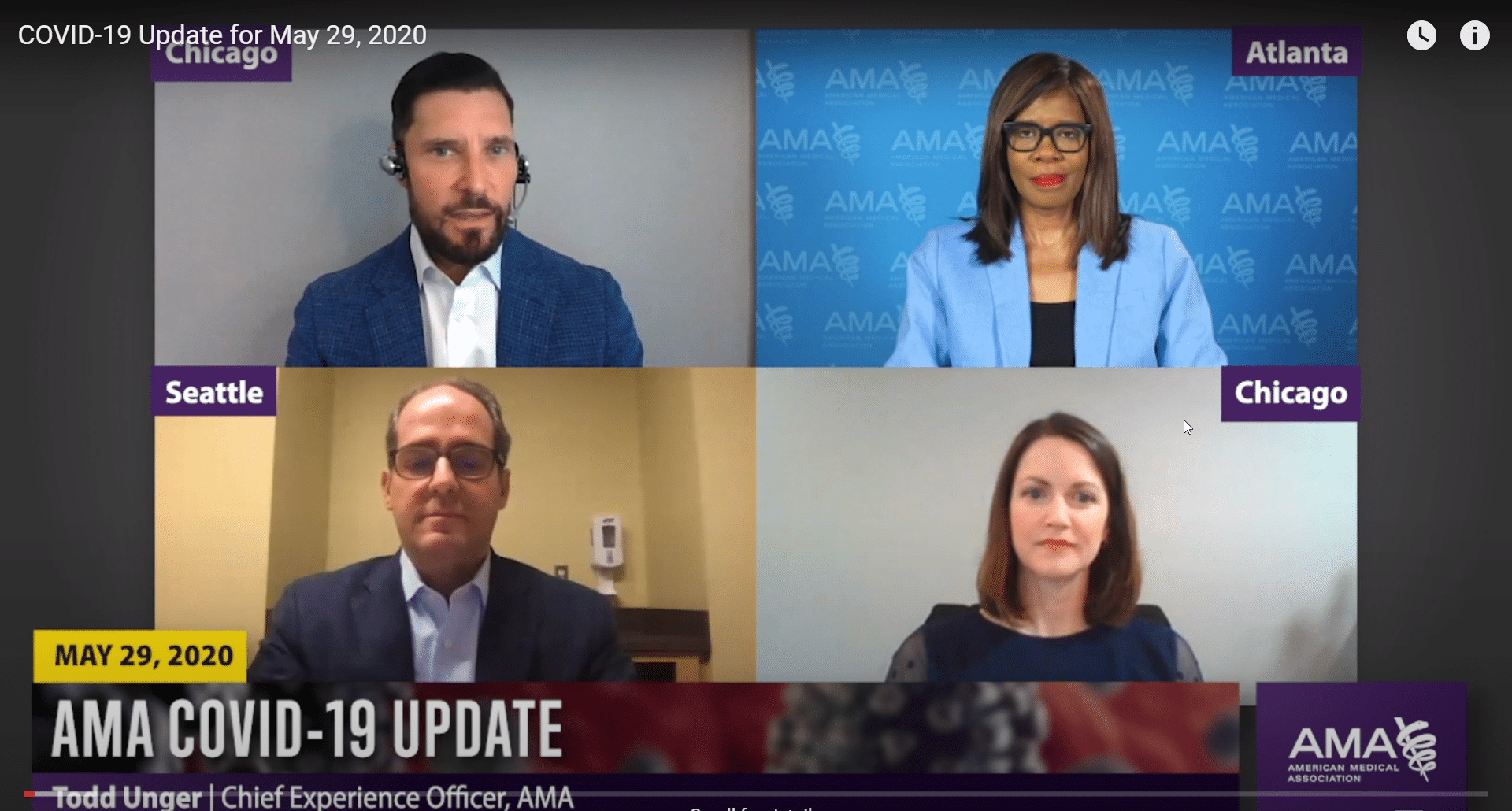
AMA President joined by addiction medicine and pain medicine physicians to discuss how nation’s opioid epidemic has been exacerbated by COVID-19 pandemic
June 15, 2020
AMA President Patrice A. Harris, MD, was joined by Elizabeth Salisbury-Afshar, MD, and Steven Stanos, MD, May 29 in an AMA COVID-19 UPDATE podcast to discuss how COVID-19 has impacted the nation’s opioid epidemic. Dr. Salisbury-Afshar is the Director at the Center for Addiction Research and Effective Solutions at the American Institutes for Research in Chicago. […]
Read more >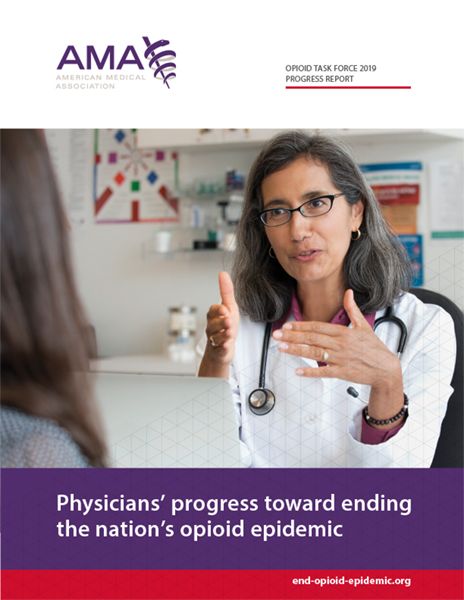
AMA Opioid Task Force 2019 Progress Report
June 12, 2020
The 2019 progress report highlights physician action and the immediate need for policymakers to focus on removing barriers to evidence-based treatment.
Read more >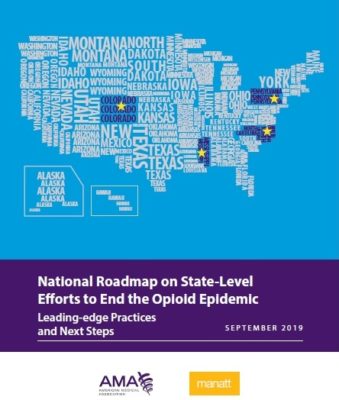
AMA-Manatt National Roadmap on State-Level Efforts to End the Opioid Epidemic
June 12, 2020
Leading-edge Practices and Next Steps.
Read more >
Advocating for forgotten populations during COVID-19
May 4, 2020
Homelessness, incarceration and opioid use disorder present unique challenges for the nation during the COVID-19 pandemic, write three public health physicians in the April 21, 2020 American Journal of Preventive Medicine. As policymakers continue to work, “[p]lanning should incorporate dedicated efforts, funding, and policies/guidelines specific to individuals who experience homelessness, are incarcerated, or are coping […]
Read more >New study finds parents need to remember to take medication storage precautions
April 30, 2020
April 30, 2020 The American Medical Association (AMA) is urging parents and all those with medications in the home to remember the importance of safe storage and disposal during the COVID-19 pandemic. The reminder comes at a time in light of a new study from Vanderbilt University Medical Center finding that while 78 percent of […]
Read more >
Advocating for additional changes to help hospice, palliative care patients during COVID-19
April 28, 2020
For patients who are bed-ridden or in the final days of their life, it may be next to impossible for a hospice and palliative care physician to conduct an in-person evaluation to satisfy state and federal rules for prescribing controlled substances. While the authors of a new commentary in Health Affairs acknowledge that the U.S. […]
Read more >Language matters: ASAM updates definition of “addiction”
April 22, 2020
Language always matters to addiction medicine physician Yngvild Olsen, MD, MPH. “Whether we are talking to our patients about medical concerns—or to policymakers about terminology—we must be clear, honest and accurate.” Dr. Olsen explained that the emphasis on using correct terminology is one of the prime reasons why the American Society of Addiction Medicine (ASAM) […]
Read more >
Emergency physician and LGBTQ advocate leading innovations to help end opioid epidemic
October 30, 2019
The way patients in the Transgender Surgery Center are cared for at Mount Sinai Beth Israel in New York City has led to some innovative revelations to help end the nation’s opioid epidemic. “Gender affirmation surgery is a significant and invasive surgery and the last thing we want is to treat the gender dysphoria but […]
Read more >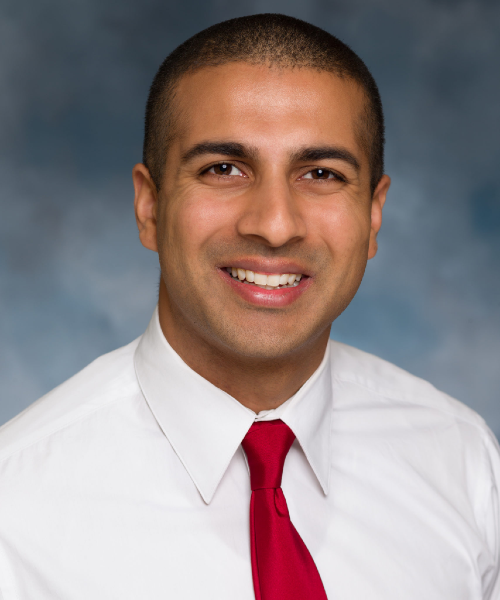
First-generation physician bridges gap between the ED and long-term SUD care
October 22, 2019
Aakash Shah, MD’s journey to become an emergency medicine physician started with a report card in a brown paper envelope. “My parents arrived in the United States with only $20 in their pockets and the name of a family friend they had never met,” said Dr. Shah. “They wanted me to have a better future, […]
Read more >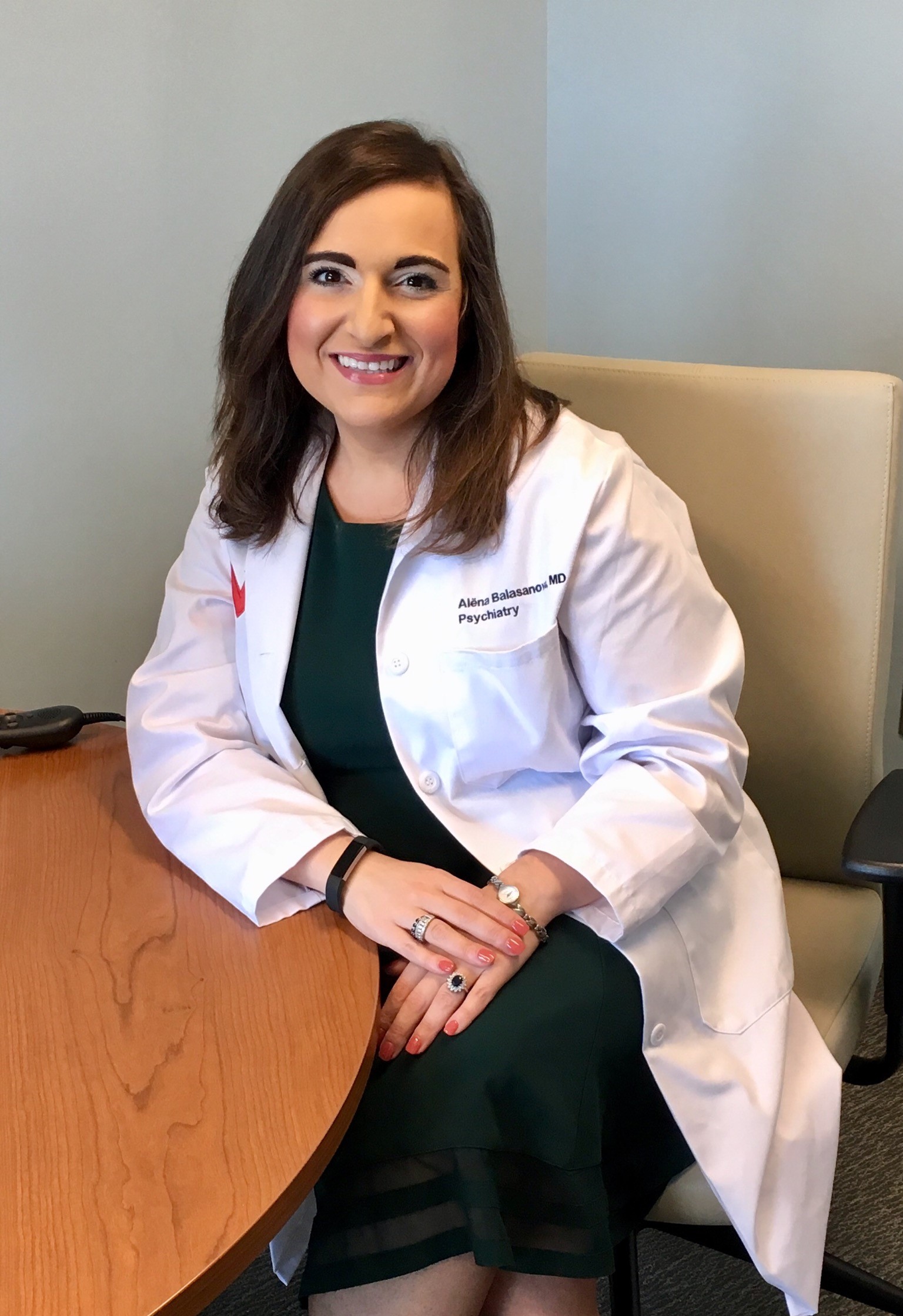
Fighting stigma and building a career treating substance use disorders
October 2, 2019
When Alena Balasanova, MD, began her psychiatry residency at Boston University, she encountered patients with SUD the way all too many people do—with judgment: “I wanted to treat patients with depression and anxiety—I didn’t sign up to treat people with a drug addiction, I held some very stigmatizing beliefs.” Over the course of her residency, […]
Read more >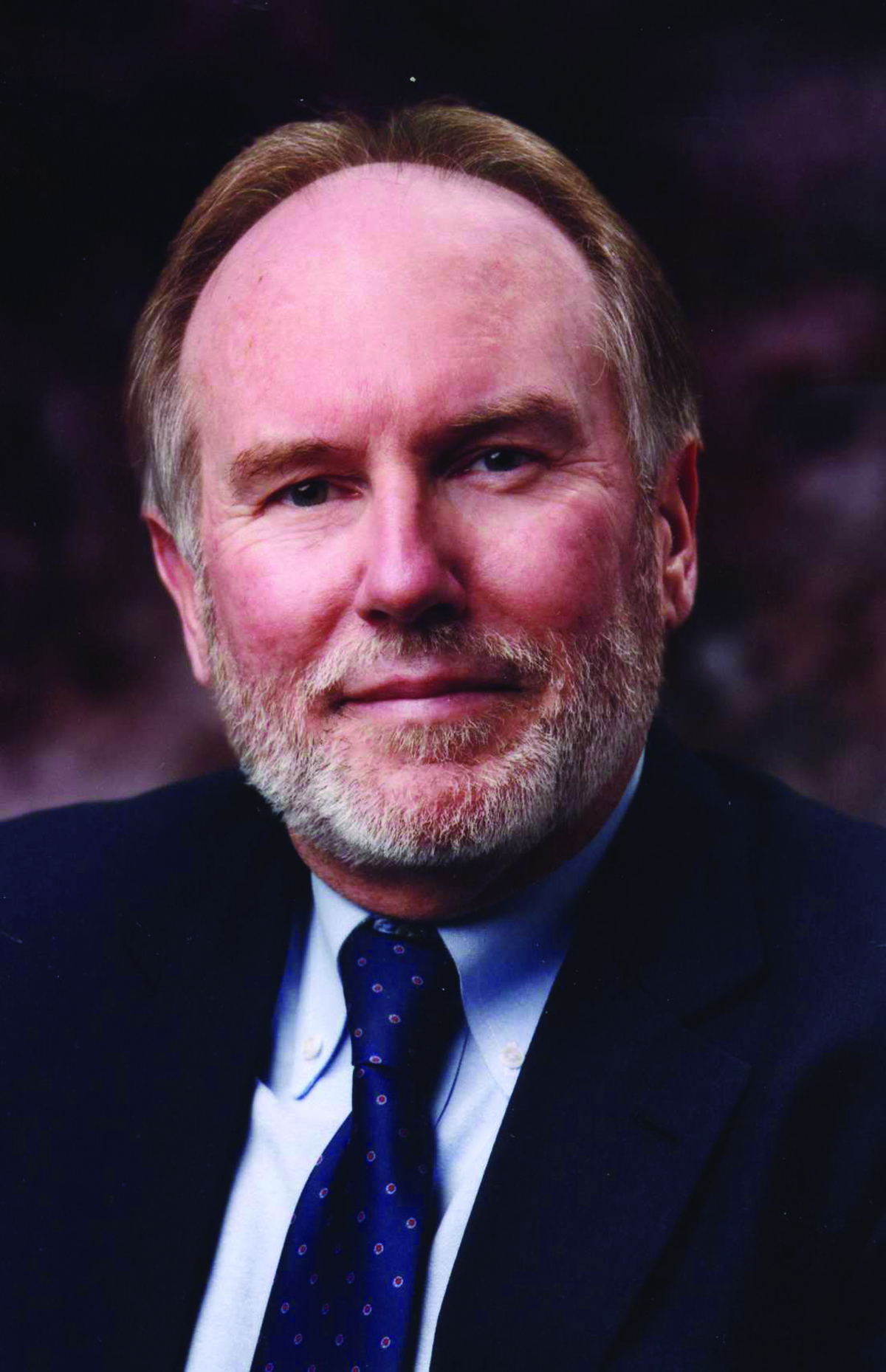
Saving time and lives by increased access to MAT in Pennsylvania
October 2, 2019
“There was no reason for the delay,” said Dr. Gallagher. “She simply wanted to get into a methadone clinic as quickly as possible for herself and her baby.” Once he and his staff finally got through to someone who could approve a prior-authorization request, it took only a few minutes, and Dr. Gallagher could then […]
Read more >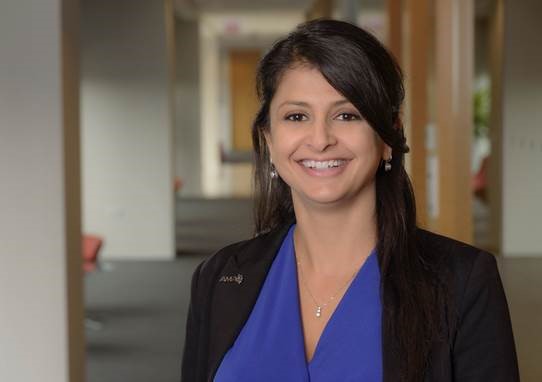
One resident’s commitment to advocating for pregnant patients with opioid use disorder
September 16, 2019
Even though maternal and fetal medicine fellow Tani Malhotra, MD, knows that the stigma of substance use disorder runs deep, she knows that it’s her professional responsibility to not only have difficult conversations with her patients—but also to speak up for her patients to policymakers. “Many of my patients feel like their medical disease is […]
Read more >Dr. Patrice Harris on 2019 AMA Opioid Task Force Progress Report
August 26, 2019
We are at a crossroads in our nation’s efforts to end the opioid epidemic. It is time to end delays and barriers to medication-assisted treatment (MAT)—evidence-based care proven to save lives; time for payers, PBMs and pharmacy chains to reevaluate and revise policies that restrict opioid therapy to patients based on arbitrary thresholds; and time to commit to […]
Read more >
Emergency department innovation increases access to care for patients with opioid use disorder
August 26, 2019
Access to treatment for opioid use disorder remains a challenge for most Americans, but there are programs in Chicago and Denver where pilot programs are showing success. Steven Aks, DO, in Chicago, and Jason Hoppe, DO, in Colorado are reaching past their traditional roles of emergency care to establish warm-handoff programs for patients with an […]
Read more >
After his son’s death, Massachusetts physician seeks to help others
June 5, 2019
When James Baker, MD’s, son Max died, the local headlines read: “Son of a doctor who couldn’t find help.” Max Baker had struggled with heroin addiction since he was 17—going in and out of treatment with periods of recovery. He and his family had struggled over the years to find the right treatment program for […]
Read more >
Prior authorization of non-opioid pain care prolongs patient suffering
June 4, 2019
A patient on long-term opioid therapy for the treatment of back pain was successfully tapered off all opioids after Illinois anesthesiologist David Walega, MD, implanted a temporary spinal cord stimulator (SCS) during a 10-day trial period. Objectively she was able to increase her quality time with her young children and husband, she was able to […]
Read more >
Reforming pain management education for the next generation of physicians
June 3, 2019
After seven years in private practice, Rachel Franklin, MD, returned to where she finished her residency in family medicine and saw a need to improve the way the family medicine center treated its pain patients. She started from the ground up. Taking on the role of medical director at the University of Oklahoma College of […]
Read more >
Removing prior authorization for MAT results in more patient care
June 1, 2019
The AMA Opioid Task Force strongly supports removing barriers that stand between patients and MAT for opioid-use disorder (OUD). Prior authorization for MAT has potentially dangerous consequences for patients who are forced to delay care or are denied treatment because of administrative barriers. Yngvild Olsen, MD, MPH, who is a member of the Maryland State Medical Society […]
Read more >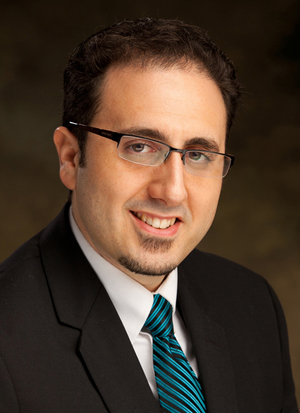
Expanding access to pain and addiction treatment in rural Missouri
June 1, 2019
As a resident at Bronx Lebanon Hospital in New York City, Kurt Bravata, MD frequently treated drug and alcohol-addicted patients and thought he understood the harsh realities these patients faced. Then he moved to a small town in rural Missouri. “The area code for Bolivar, MO, where I practice is 417, which is also the […]
Read more >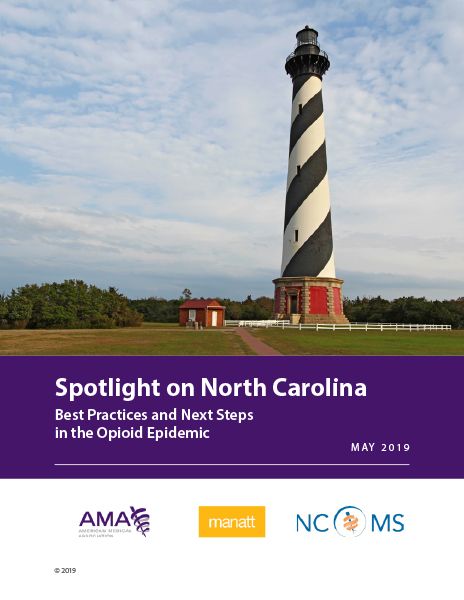
Spotlight on North Carolina
May 15, 2019
Analyzing substance use disorder treatment, pain management and harm reduction.
Read more >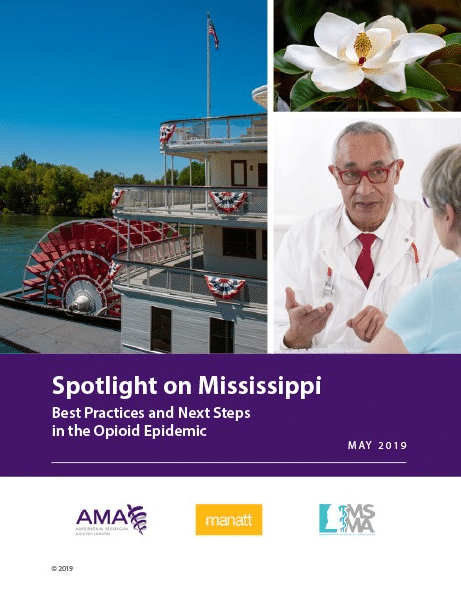
Spotlight on Mississippi
May 15, 2019
Best practices and recommendations for ending the opioid epidemic in Mississippi.
Read more >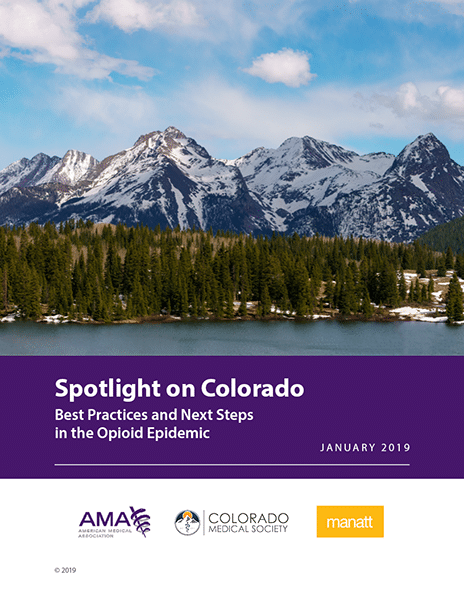
Spotlight on Colorado
January 15, 2019
Colorado’s progress and recommended next steps to end the opioid epidemic.
Read more >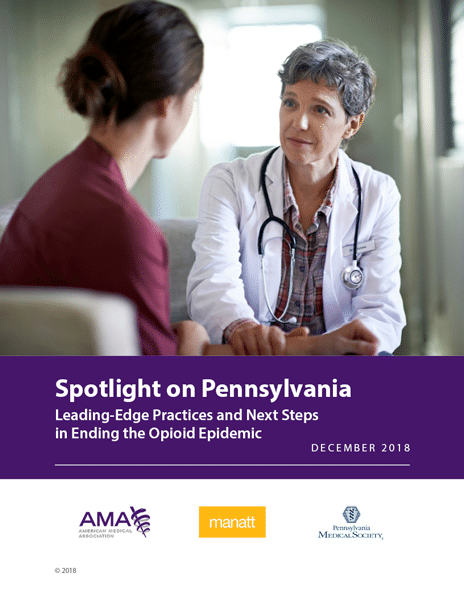
Spotlight on Pennsylvania
December 15, 2018
Pennsylvania makes for an ideal case study on how strong leadership can make a difference—even if the fight is not over yet.
Read more >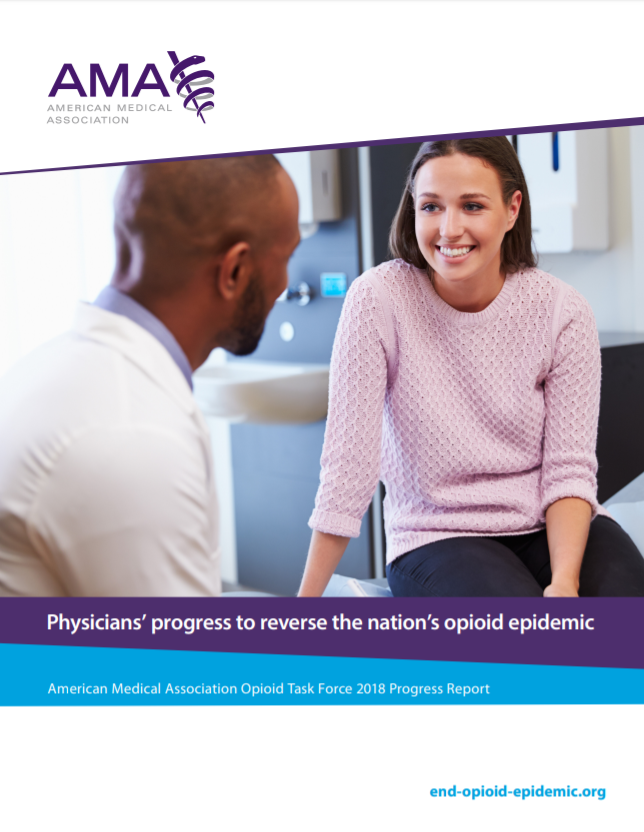
AMA Opioid Task Force 2018 Progress Report
June 12, 2018
Physicians’ progress to reverse the nation’s opioid epidemic.
Read more >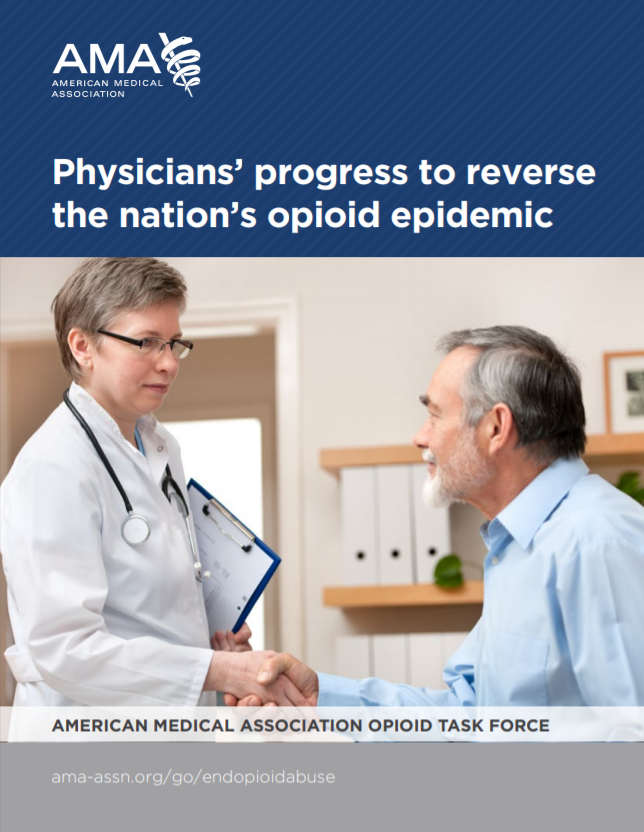
Be part of the solution.
Join the AMA today and help us lead the effort
to reverse the nation’s opioid epidemic.